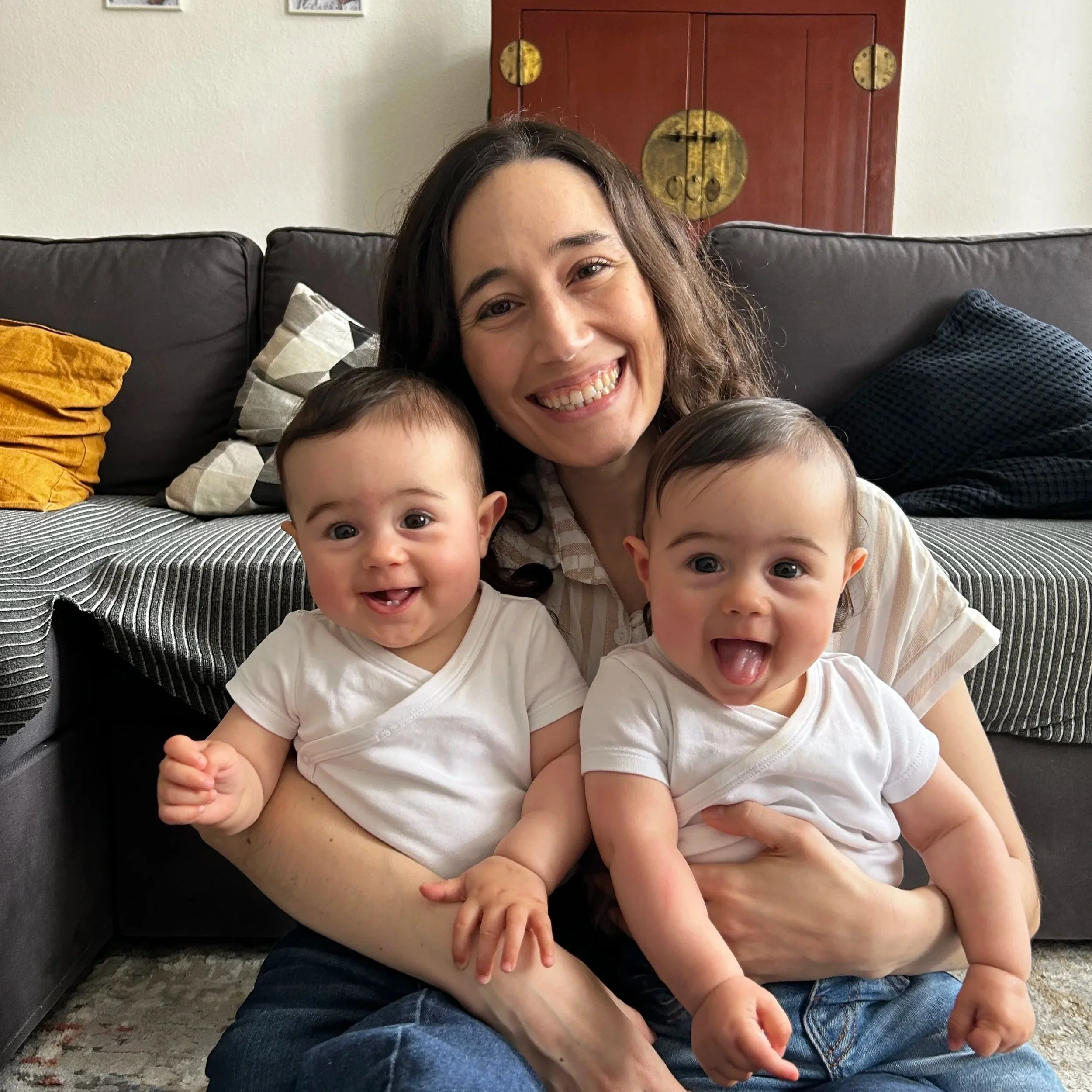Inês Moreira
BIO
PhD candidate in cancer glycobiology at Hannover Medical School (Germany). Mother of twin girls.
“One solution was integrating my personal and professional life, rather than trying to keep them completely separate.”
My journey in science is deeply intertwined with my personal life, filled with unexpected challenges and incredible support. As an enthusiastic student from Portugal, I moved from Lisbon to Porto to follow my dream of doing my Master’s thesis in the field of cancer glycobiology.
There I met my husband, Manuel, who was a PhD student at the time, and is the most brilliant person I have ever known! After finishing my Master’s thesis and publishing my work, the pandemic hit.
Despite the uncertainty, I felt a strong desire to continue pursuing my dreams and decided to move abroad for my PhD. In 2020, during the COVID-19 restrictions, I moved to Hannover in Germany. Manuel, my fiancé at the time, changed the course of his PhD to join me in Germany.
We got married in 2022, and in 2023 I became pregnant, a planned and joyful milestone in our lives. The surprise came when we discovered we were expecting twin girls! Balancing the demands of rigorous research with the responsibilities of motherhood has been both rewarding and overwhelming.
The early months after parental leave were particularly challenging, juggling sleepless nights with the need to maintain productivity in the lab. Struggles included not being able to attend conferences because I needed to take care of my daughters; their dependency on me added another layer of complexity.
As expat parents with no support, managing childcare entirely on our own makes it difficult for us both to participate in academic opportunities. Deadlines don’t wait for nap schedules, and experiments rarely align with the unpredictability of caring for two infants.
Support played a crucial role in navigating these challenges. My husband has been an incredible partner, sharing both childcare responsibilities and understanding better than anyone the unique pressures of academic life. My supervisor has been another incredible source of support, creating a flexible and comprehensive work environment that advocates for family values. Their support allowed me to stay engaged in my work without feeling overwhelmed.
One solution I found invaluable was integrating my personal and professional life, rather than trying to keep them completely separate. This included bringing my daughters to informal lab meetings or conferences when necessary, working from home, and openly discussing my family commitments with colleagues. Surprisingly, this transparency fostered a supportive environment and encouraged others to share their own struggles, creating a culture of mutual understanding.
Publishing while navigating these responsibilities taught me resilience and time management in ways I hadn’t anticipated. It also deepened my appreciation for the importance of support networks, both personal and professional. Although being a mother in STEMM comes with its unique set of challenges, it also brings a new perspective, fostering empathy, creativity, and a profound sense of purpose in my scientific journey.
Through these experiences, I have developed a strong desire to advocate for women in science. I hope that my daughters can grow up in a world where they can be whoever they want to be, without facing the same struggles experienced by me and previous generations of women.
Supporting and uplifting women in STEMM is not just about equity: it’s about fostering an environment where different perspectives and life journeys lead to richer and more innovative scientific discoveries.

